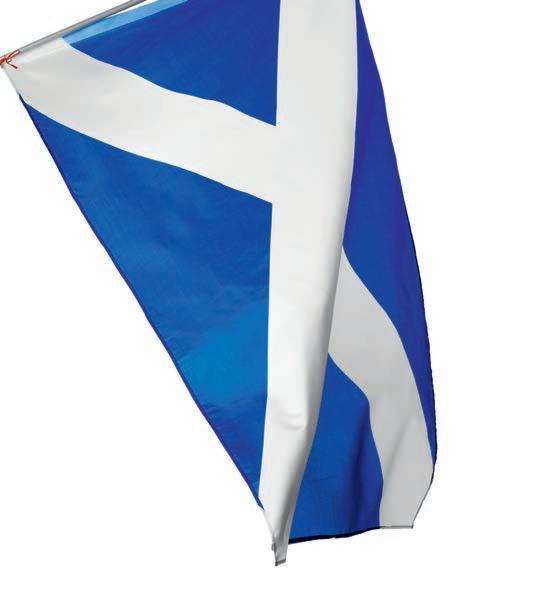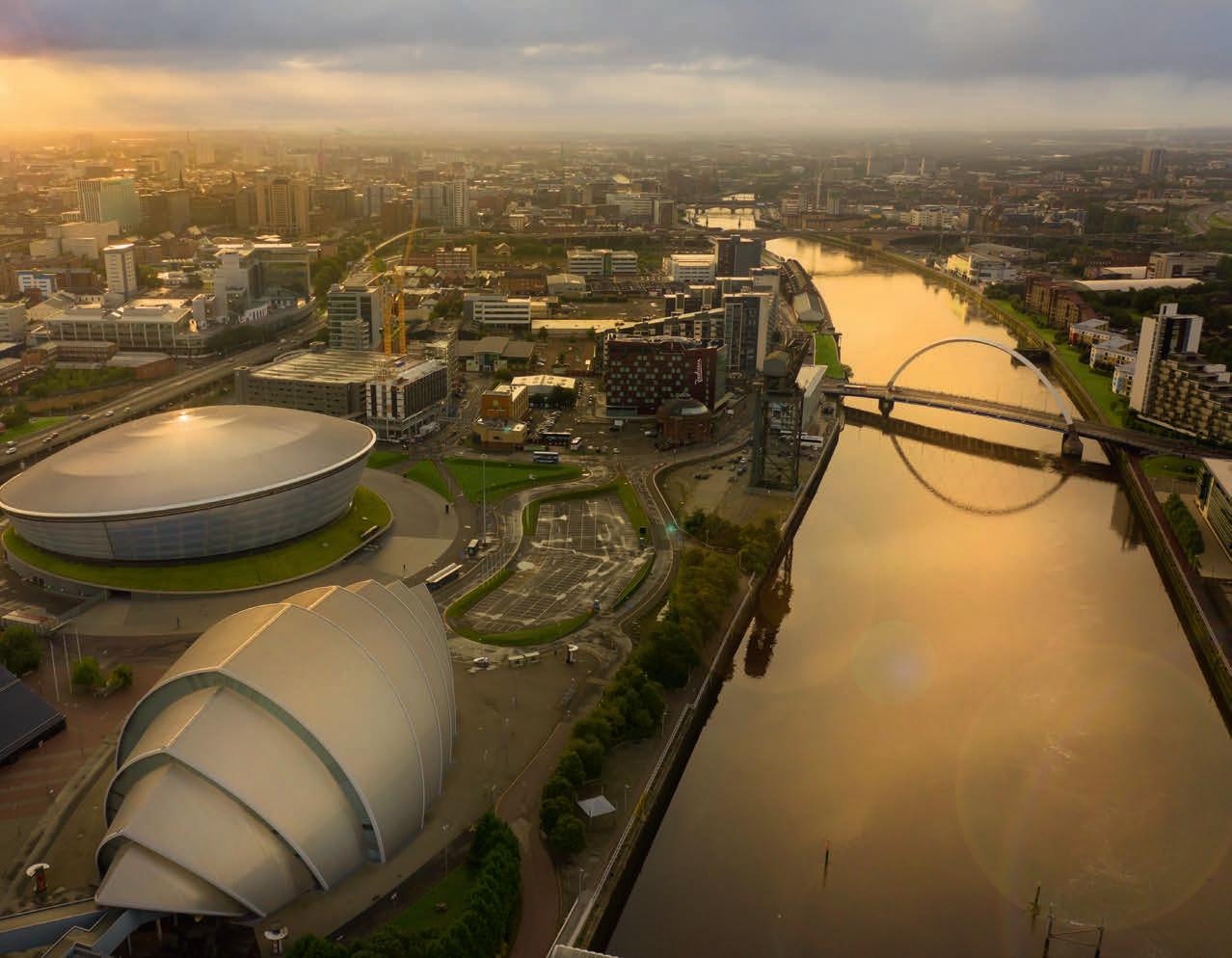
5 minute read
Hamish Macdonell
BY HAMISH MACDONELL
All eyes on Glasgow
COP26 represents an opportunity for the fi sh farming sector to make its case
You have to go back 16 years to fi nd the last � me Scotland hosted an event with as much global signifi cance and profi le as the COP26 summit, due to be held in Glasgow this November.
In 2005, it was the G8 at Gleneagles. I remember it well as I was part of the media swarm buzzing around inside the event itself.
There were so many images and memories that stand out: there was the huge media hangar, with na� onal fl ags hanging from the roof, showing which long bank of desks was for each country.
There was the dis� nctly surreal experience of standing on the balcony of the media bar, gin and tonic in hand, watching protesters ba� le with riot police outside the perimeter, just a hundred yards away.
There was the sight of Bono – plus entourage – rushing between mee� ngs of world leaders; but there was also the shocking and tragic end to the summit brought about by the 7/7 bombings in London.
Like that G8 mee� ng, COP26 will be a mixture of massive interna� onal stories and small human interest events. There will be protests which will capture immediate but fl ee� ng coverage, there will be stunts – some imagina� ve, some plain crass – and everywhere there will be someone trying to grab the media’s a� en� on.
It will be a circus and there is li� le point in any fringe group or organisa� on going to COP in the expecta� on of making any sort of media splash because the story will always be elsewhere.
However, there is considerable merit in being there if you have a clear but limited aim in mind. That is why we in the Sco� sh salmon sector will be at the COP26 conference and why we hope our involvement will mark the start of a shi� in percep� on about our sector.
To appreciate what we are doing and why, it is worth considering what COP26 actually is. Although similar in size, scale and infl uence, COP26 is very diff erent from the G8. Where the G8 was a leaders’ forum, an event to bring the migh� est economic powers from around the world together, COP26 is an event pitched somewhere between a global movement and a statement of intent. Indeed, it could almost be described as a global campaign in the form of a governmental conference.
It feels as if COP26 is a grassroots event which has been taken out of the hands of the people and handed over to government and, as such, it carries with it a huge weight of expecta� on: it is designed to set the tone and the direc� on for climate change ac� on for years to come.
But it is precisely because it is so much more than a mee� ng of the G8 that it ma� ers so than a mee� ng of the G8 that it ma� ers so much to sectors like ours.
We want to be at COP26 for one reason and one reason only: we want to be seen as part of the solu� on to the environmental problems the world faces. the world faces.
Some of our cri� cs are determined to portray salmon farming as part of the problem. tray salmon farming as part of the problem. We have railed against that and we will con� nue to do so.
A� er all, we have a great environmental story to tell with our low carbon footprint, low water use and terrifi c feed conversion rate. Indeed, salmon farming should be at the forefront of environmentally friendly protein produc� on plans.





Above: Sunrise aerial view of Glasgow Left: COP26

Too often, though, we are not. Too often, we are smeared with allegations from our critics that we are part of the problem.
Well, our task at COP is simple, it is to position the Scottish salmon sector right at the heart of the climate change agenda – as part of the solution.
We don’t expect to force our way into the macro media agenda during the event but being in Glasgow, having people at our events and being part of the wider discussions should place us where we need to be – on the right side of the argument.
The sustainability charter which the SSPO published last October was the first concrete step the sector took in making this approach real. An update on progress, one year on, will be published in time for COP showing how far we have come in just 12 months to meet the commitments announced last year.
But we will also have new nutritional studies completed, analysis of our sector’s carbon footprint and other key baseline information – including on the use of biodegradable and recyclable packaging.
When all this is added to the work that has already been done, it will add up to a compelling picture of a sector which is ready and able to help lead Scotland’s green recovery.
The UN gets the Blue Economy and its importance in feeding the world. The Scottish Government also gets the Blue Economy and its role in a sustainable and long-lasting recovery from Covid-19.
All we want is to be seen as being part of that discussion. We want to be viewed as a key piece of the jigsaw which will start to come together at COP in Glasgow this November.
Back at Gleneagles in 2005, I spent a frustrating evening arguing with White House press spokespeople, trying to find out if President George W Bush had indeed fallen off his bicycle while trying to wave to someone, as I had been told he had (he had, it turns out).
Although I would have had the scoop of my life had I managed to stand up that story before anyone else, my ambitions for COP26 this year are much more modest.
All I want is for salmon farming in general and the Scottish sector in particular, to be placed where it should be in the ongoing discussions over climate change, the environment and feeding the world – as part of the solution.
It is a simple aim but also an ambitious one because, if we can get this right, then we will not just be on the right side of this discussion, we will be on the right side of history too. FF










